Ukrainian composer Anna Korsun has come to create music for Vilnius: “This is a unique project in my career”
Anna Korsun, who lives in Berlin and teaches at the Conservatorium van Amsterdam, is the first of seven world-famous composers participating in the “Music for Vilnius” project to mark the capital’s upcoming 700th anniversary. As part of the project, all of these composers will create unique pieces that will be played in seven places around Vilnius during the anniversary celebration. Soon, the young composer will face one of the most interesting projects of her career, as well as an ambitious challenge: creating a piece of music for a space in Vilnius that she will select herself. In Vilnius for the first time, she has already spent several days exploring the city and photographing places that evoked thoughts and emotions.
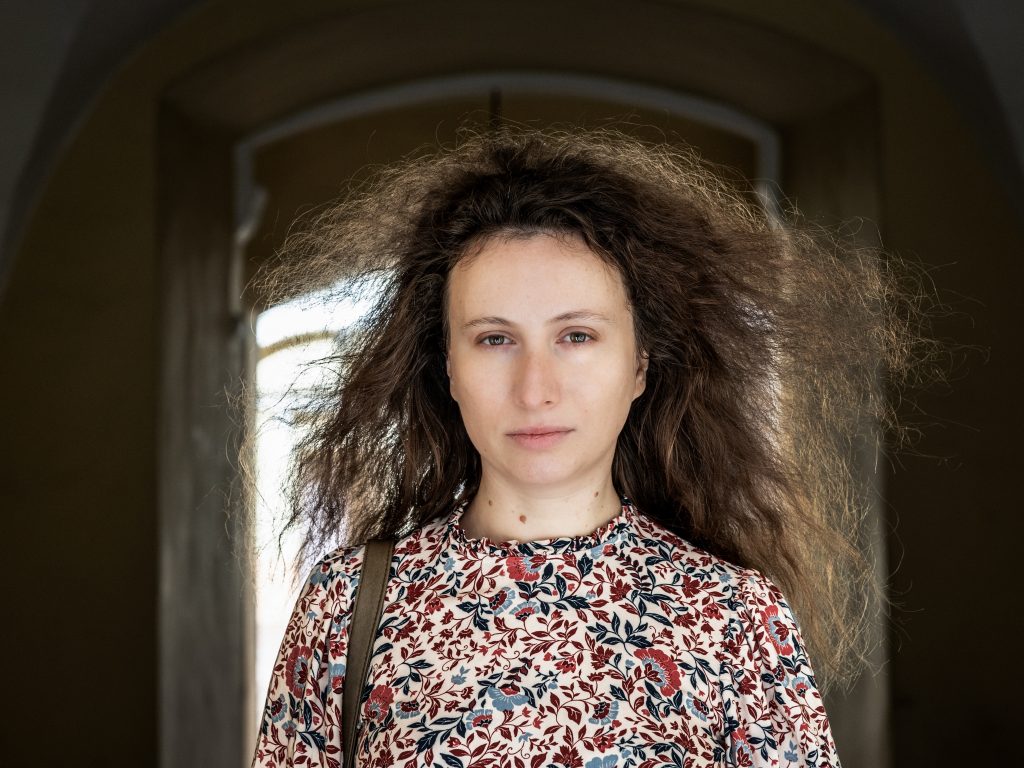
The “Music for Vilnius” project will allow the city to resound worldwide
All of the composers who will be creating music for Vilnius are famous worldwide, collaborating with contemporary music performers and presenting their works at international festivals. The composers represent different generations and styles that reflect the main processes of contemporary 20th-21st century music in the world. The pieces created for Vilnius are therefore sure to garner attention in other countries as well.
Read more about the project
After the composers have chosen their spaces in Vilnius, locals will be invited to tell their personal stories related to them. These stories might potentially become a source of inspiration for the composers, as they will be posted on a website and provided to the composers as additional material. The authors of the most interesting stories will have the opportunity to meet these world-famous composers.
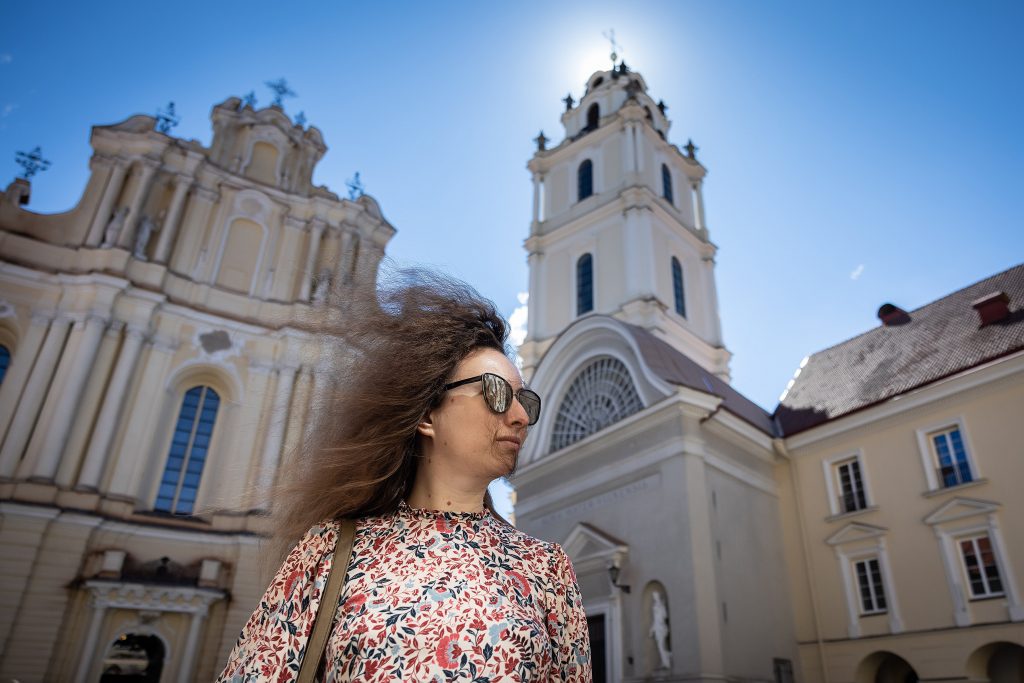
In addition to Anna Korsun, six other composers from different countries around the world will be participating in Meno Genas’s “Music for Vilnius” project: Agata Zubel from Poland, Toshio Hosokawa from Japan, Michael Gordon from the United States, Heiner Goebbels from Germany, and Ivan Fedele from Italy. Vilnius locals and guests of the anniversary celebration will be able to hear their pieces during concerts that will be held in 2023, and the compositions will later become a part of Vilnius, which people will be able to listen to in different places in the city.
First time creating music for a city
In June, Anna Korsun visited Vilnius for the first time, and the first word that came to mind to describe it was “cosy”. While walking around the city, she would sometimes take a small pipe or harmonica out of her purse to check how the sound travelled in certain places; she also took pictures and wrote down her impressions.
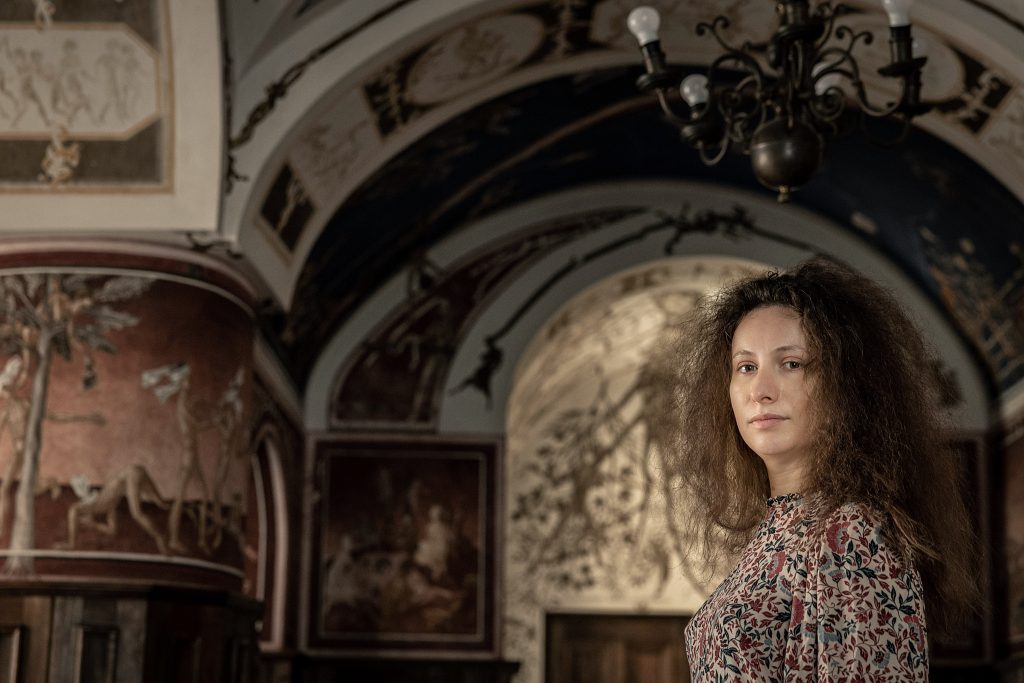
“I looked at quite a few spaces in Vilnius, both traditional ones in the old town and non-traditional ones in the sleeping districts, and it immediately became clear that it would be very difficult to choose ‘my’ place – the one I will be creating for. When I received the offer to participate in the ‘Music for Vilnius’ project, I was delighted and surprised – I have never created anything like this before, and a city that is preparing to celebrate its anniversary on such a scale is truly special! I was also pleased with how serious the preparation is for the project – I can see Vilnius with my own eyes and feel it in person, not only from photos. This is a completely different experience. The place where pieces will be played has always been and always will be important to me – when writing a piece of music, I often imagine where it will be performed and how it will fit into the whole,” says Anna.
From piano to composition
Anna was born into a family of musicians – both her mum and dad were accordion players, so she jokes that she had no other choice but to go to music school when she was a child. At home, the only thing she managed to negotiate was that she wasn’t going to learn to play the accordion, because she had fallen in love with the piano at first sight.
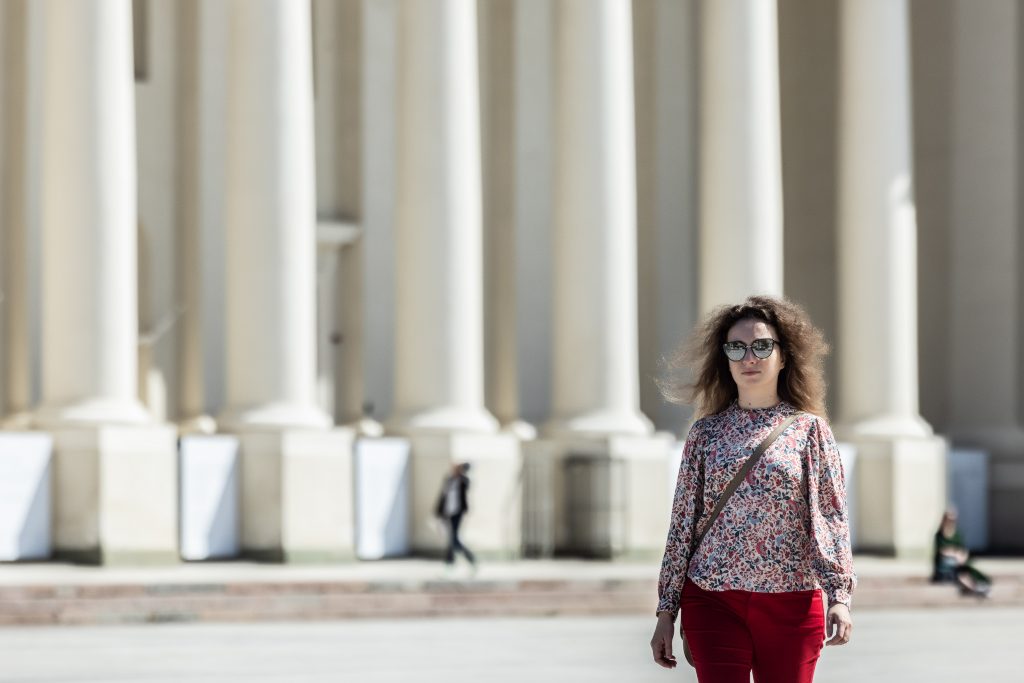
“As a child, I started to compose this and that, but I didn’t know how to write the music down. Then I tried to become a pianist, but I quickly realised that it was something of a musical sport – if you want to not be completely mediocre, you need to practice for 6-7 hours every day, but even then my future wouldn’t have been the one I dreamed of. I definitely didn’t want to be a teacher at a music school… I’ve tried my hand at teaching many times, but it’s definitely not for me. So I found myself at a crossroads, wondering if I should just quit it all and change my profession. But my mum convinced me not to give up music. That’s when I decided to try composing,” says Anna.
She studied composition at the Kyiv Conservatory, then decided to study with Professor Moritz Eggert in Munich, because she realised that she had no prospects as a composer in Ukraine. “The profession of a composer, even though they are being trained, simply does not exist. You can only be a composer in your spare time – all my colleagues in Ukraine have other jobs to make ends meet. I didn’t want that – I felt that I needed more space and opportunities, so I left,” explains Anna.
“I am a artist of sounds”
After falling into the hands of the talented teacher Moritz Eggert, Anna blossomed as an original music writer, combining music composition, installation, performance and sound art in her work. “When you’re young and unknown, connections and acquaintances mean a lot, so I’m grateful to my teacher, Moritz Eggert, who tried to show my work to others,” Anna mentions. Now she includes both professional musicians and amateurs or people completely unrelated to sounds in her work. And that’s not all – the composer herself performs contemporary music as a vocalist and keyboardist and heads musical projects.
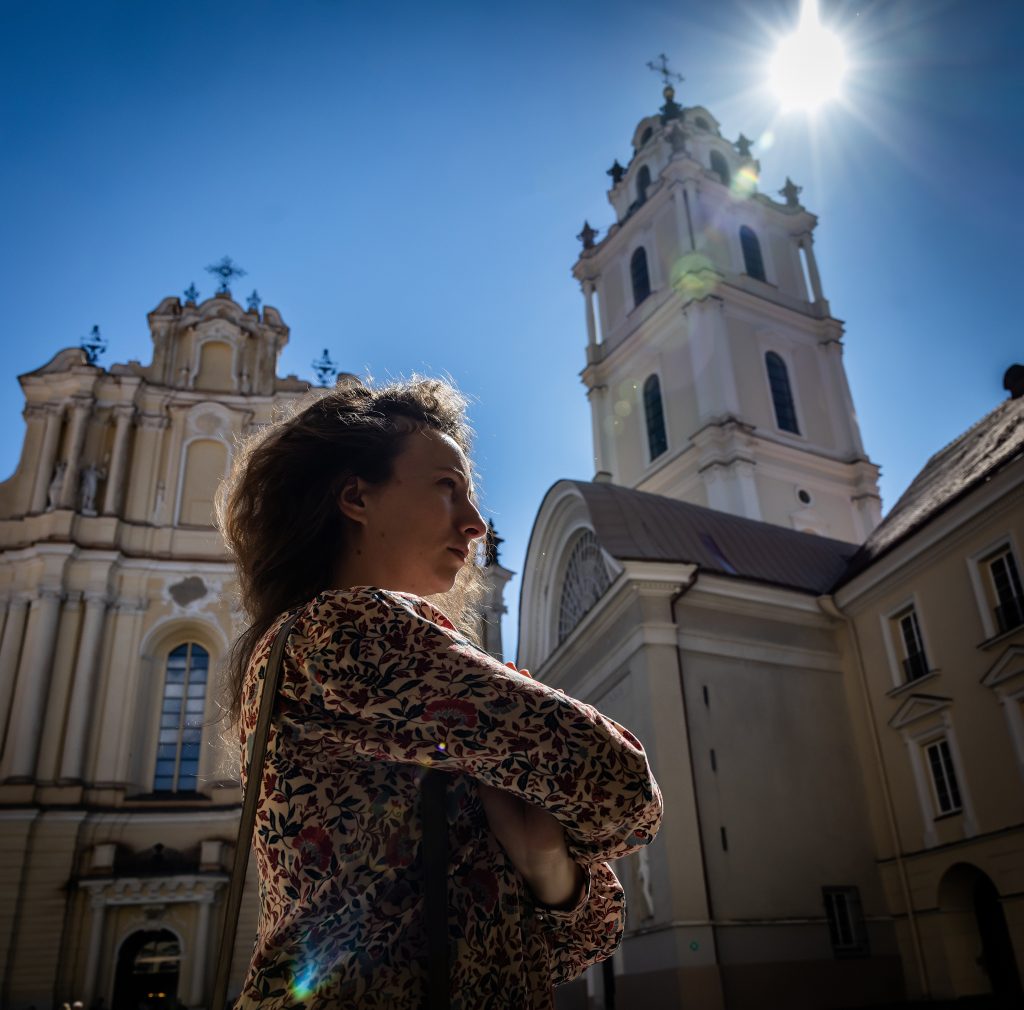
In her compositions, Anna can even “employ” singing saws alongside violins and cellos – these saws emit a very subtle sound, as can be heard in her Marevo. As a person who creates music, she is extremely sensitive to sounds – sometimes she looks for unexpected sounds on purpose, and sometimes she hears them by chance and records them. “Once I saw a small metal shelf in a hotel bathroom and just started ‘playing’ on it with various things to make different sounds. And sometimes I just get this idea in my head of how it should sound, and then I try to find equivalents in reality. It can be interesting-sounding things or some unexpected mixes of sounds,” says the composer about what goes on behind the scenes in her profession.
You can find out more about the “Music for Vilnius” project on the project website: www.musicforvilnius.com.
The entire Vilnius 700th anniversary programme is available online at: www.700vilnius.lt.
